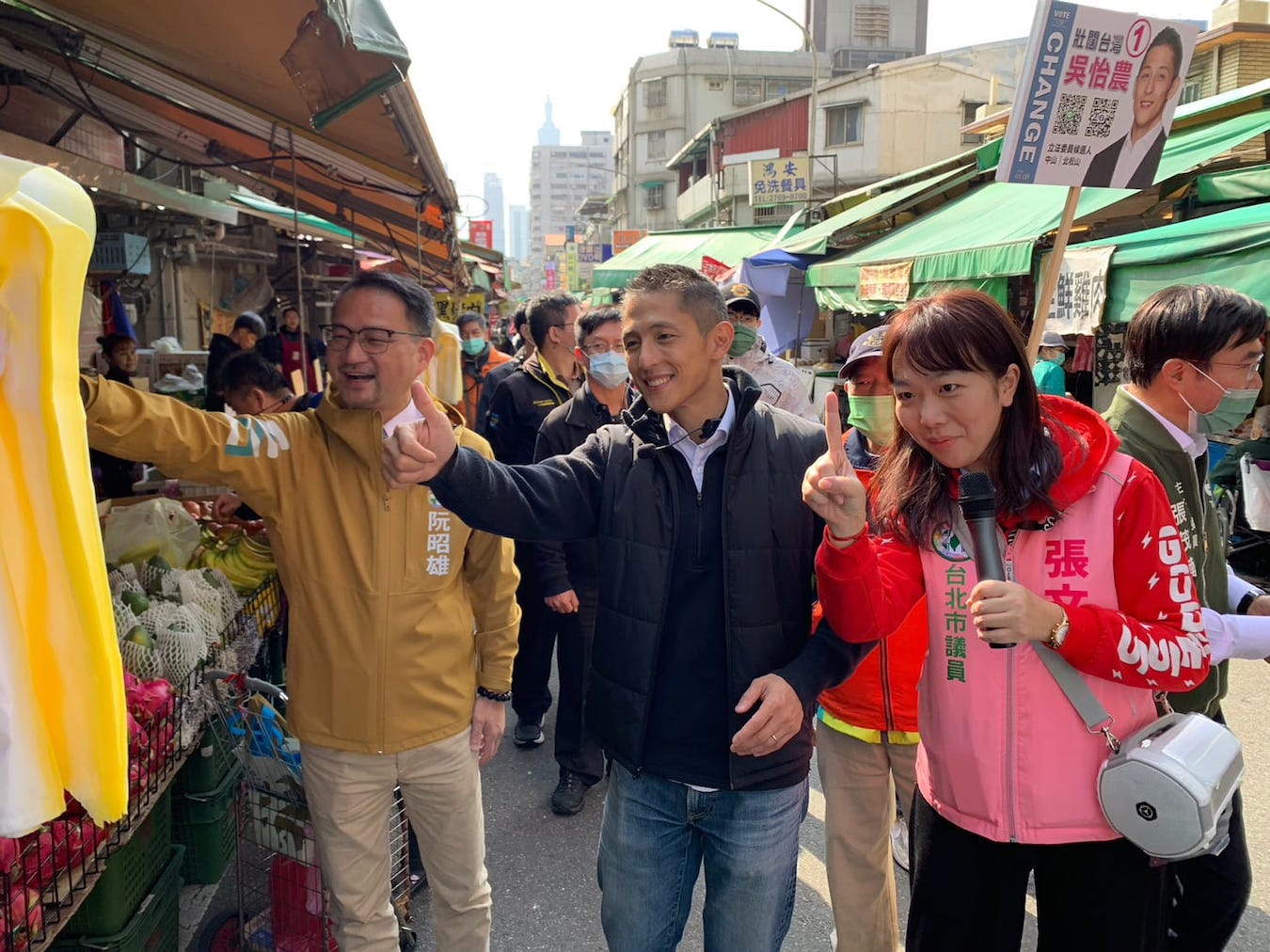The DPP unsuccessfully tried to make corruption and gangster ties by pan-Blue politicians into a campaign issue late in elections. This seems to have been a strategy that the DPP settled on as a result of pan-Blue independent Chung Tung-chin, who was backed by KMT incumbent Hsu Yao-chang against the wishes of party central, having old gang-related assault and murder charges that emerged in the process of campaigning.
Despite Chung’s checkered record as a politician, this did not prevent his victory in the Miaoli magistrate race. Neither did high-profile corruption charges facing Yilan county magistrate Lin Zi-miao and Hualien county magistrate Hsu Chen-wei prevent their reelection bids, or the victory of the TPP’s mayoral candidate in Hsinchu, Ann Kao.
However, it may be that the DPP is increasingly attacked over claimed links to organized crime. One notes this with regards to claims by KMT city councilor Wang Hung-wei that her opponent to fill the legislative seat previously occupied by Chiang Wan-an in Taipei, Enoch Wu, has gangster ties. Similarly, it is thought that former NPP chair Huang Kuo-chang, in publicizing statistics showing that 15% of city councilors in Taiwan have criminal records, may be aiming to use these statistics in order to attack the DPP, as part of his recent endorsement of TPP mayoral candidate Huang Shan-shan in Taipei.

ENOCH WU (CENTER) WHILE CAMPAIGNING. PHOTO CREDIT: ENOCH WU/FACEBOOK
The DPP may have perhaps leveraged unsuccessfully in the issue, inadvertently causing members of the public to not take its allegations against opponents seriously. For example, after DPP Taipei mayoral candidate Chen Shih-chung’s defeat in Taipei, DPP legislator Mark Ho claimed that this was due to the influence of gangsters in the DPP leadership. Chen later denied that this was the case, stating that his defeat was primarily due to his own weakness as a politician rather than a product of organized crime influence.
It is true that politicians of both camps have been found to have organized crime ties. Likewise, one notes that an identity split exists within the world of Taiwanese organized crime between gangsters that identify with Taiwan and those that identify with China, much as it does in all facets of life in Taiwan.
At the same time, it is historically the KMT that is known for links to organized crime. This goes all the way back to before the KMT came to Taiwan, with links to the “Green Gang” in Shanghai to carry out acts of political violence such as the 1927 Shanghai Massacre.
The KMT also used gangs to carry out political killings in Taiwan during the authoritarian period, as with the killing of journalist Henry Liu by members of the Bamboo Union gang in the US. To this extent, when traditional mechanisms of power no longer worked, the KMT relied on gangs to mobilize votes.
Nevertheless, the KMT has always sought to avoid confronting its authoritarian past. In recent years, the KMT has increasingly leaned into the rhetorical strategy of claiming that the DPP is guilty of actions it was accused of as part of authoritarian governance. Consequently, in past years in which the DPP has been attacked by the KMT traditional lines of attacks directed at tit, such as with regard to the KMT’s claims that it is facing a “Green Terror” orchestrated by the DPP–never mind that one wonders where the dead bodies are if that is the case.
This is part of a larger pattern in which the KMT has sought to mimic what it views as the successful tactics of the DPP in everything from occupying the Taiwanese legislature to use of the referendum for election campaigning. The KMT’s attempts at an occupation, such as by the “800 Heroes” protesting pension reform or by the KMT legislative caucus in demonstration of the Tsai administration lifting barriers to US pork imports, were mostly abortive. The KMT has had more success in using the political referendum to rally its base for elections, however. As such, one expects to see further attempts to attack the DPP over purported organized crime ties going forward.
Brian Hioe
 Europe Solidaire Sans Frontières
Europe Solidaire Sans Frontières


 Twitter
Twitter Facebook
Facebook